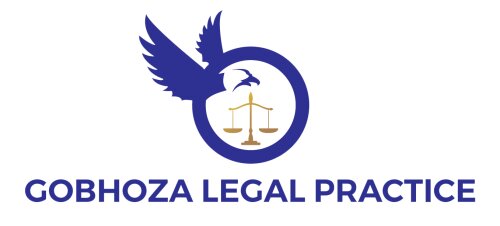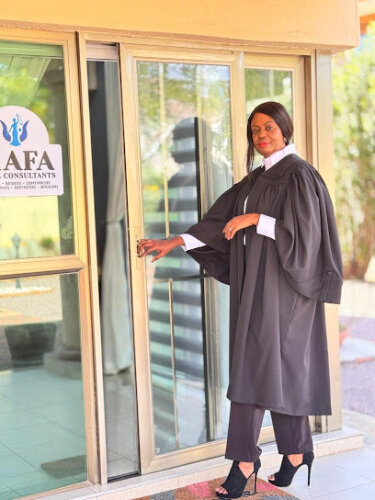Best Real Estate Contracts and Negotiations Lawyers in Gaborone
Share your needs with us, get contacted by law firms.
Free. Takes 2 min.
Free Guide to Hiring a Real Estate Lawyer
List of the best lawyers in Gaborone, Botswana
About Real Estate Contracts and Negotiations
Real estate contracts and negotiations involve legally binding agreements between parties for the purchase, sale, or lease of property. These contracts outline the terms, conditions, and obligations of each party involved. Negotiations are an essential part of this process as they ensure that the interests of all parties are balanced and fair. In Gaborone, Botswana, real estate contracts must comply with local laws and regulations to be valid and enforceable.
Law in Gaborone, Botswana
In Gaborone, real estate contracts and negotiations are governed by a combination of statutory laws and common law principles. The key legislation includes the Deeds Registry Act, the Land Control Act, and aspects of the Contract Law as contained in the Roman-Dutch law tradition. These laws ensure that property transactions are conducted fairly and transparently, protecting the rights of all parties involved.
Why You May Need a Lawyer
There are several situations in which legal assistance may be beneficial during real estate transactions:
- Complex Contracts: Real estate contracts can be complex, with numerous clauses and conditions that need careful review to prevent any future legal issues.
- Negotiations: Lawyers can offer expertise in negotiations, ensuring that you get the best deal possible and that your interests are protected.
- Dispute Resolution: Any disputes or misunderstandings between parties can be resolved more efficiently with legal intervention.
- Legal Compliance: Ensuring that all aspects of the contract comply with local laws and regulations can save time and prevent costly mistakes.
- Transaction Closure: Lawyers help in the smooth closing of transactions by managing paperwork, coordinating with relevant authorities, and handling any title issues.
Local Laws Overview
Several local laws govern real estate contracts and negotiations in Gaborone:
- Deeds Registry Act: This law ensures that all property transactions are registered and recorded. It maintains a public registry of real estate ownership and interests.
- Land Control Act: This act regulates transactions involving agricultural land to prevent fragmentation and ensure sustainable development.
- Common Law Principles: Derived from Roman-Dutch law, these principles cover various aspects of contract law, including offer, acceptance, and the necessity of written agreements for certain transactions.
Frequently Asked Questions
1. What should I look for in a real estate contract?
Ensure that the contract clearly outlines the property details, purchase price, payment terms, closing date, contingencies, and any warranties or guarantees.
2. Do I need a lawyer to buy property in Gaborone?
While it is not legally required, having a lawyer can help navigate complex legal requirements, review contracts, and provide peace of mind.
3. What is a title deed, and why is it important?
A title deed is a legal document that proves ownership of a property. It is crucial for establishing ownership rights and is necessary for registering the property with the Deeds Registry.
4. How do I verify the ownership of a property?
Conduct a title search through the Deeds Registry to verify the ownership and check for any encumbrances or liens on the property.
5. Can foreigners buy property in Gaborone?
Yes, foreigners can buy property in Gaborone, but there are specific regulations and approvals that may be required, especially for agricultural land.
6. What happens if a party breaches the contract?
If a party breaches the contract, the other party may seek remedies such as specific performance, damages, or contract termination.
7. How long does it take to close a real estate transaction?
The closing process can take several weeks to a few months, depending on the complexity of the transaction and any required approvals.
8. What is a contingency clause?
A contingency clause specifies conditions that must be met for the contract to be binding. Common contingencies include financing approval and satisfactory property inspections.
9. How are property taxes handled in a real estate transaction?
Property taxes are typically prorated between the buyer and seller based on the closing date. Ensure this is clearly outlined in the contract.
10. What should I do if I find an issue with the property after purchase?
Review the contract for any warranties or guarantees and consult your lawyer to discuss potential remedies or legal actions.
Additional Resources
Here are some resources that may be helpful:
- Deeds Registry Office: For information and services related to property registration.
- Land Tribunal: For resolving disputes related to land and property.
- Botswana Law Society: To find qualified real estate lawyers in Gaborone.
- Ministry of Land Management, Water and Sanitation Services: For regulations and policies on property transactions.
Next Steps
If you need legal assistance in real estate contracts and negotiations, consider the following steps:
- Contact a qualified real estate lawyer in Gaborone.
- Prepare all relevant documents and details about the property transaction.
- Schedule a consultation to discuss your needs and get professional advice.
Engaging a lawyer early in the process can help prevent legal issues and ensure a smooth and successful real estate transaction.
Lawzana helps you find the best lawyers and law firms in Gaborone through a curated and pre-screened list of qualified legal professionals. Our platform offers rankings and detailed profiles of attorneys and law firms, allowing you to compare based on practice areas, including Real Estate Contracts and Negotiations, experience, and client feedback.
Each profile includes a description of the firm's areas of practice, client reviews, team members and partners, year of establishment, spoken languages, office locations, contact information, social media presence, and any published articles or resources. Most firms on our platform speak English and are experienced in both local and international legal matters.
Get a quote from top-rated law firms in Gaborone, Botswana — quickly, securely, and without unnecessary hassle.
Disclaimer:
The information provided on this page is for general informational purposes only and does not constitute legal advice. While we strive to ensure the accuracy and relevance of the content, legal information may change over time, and interpretations of the law can vary. You should always consult with a qualified legal professional for advice specific to your situation.
We disclaim all liability for actions taken or not taken based on the content of this page. If you believe any information is incorrect or outdated, please contact us, and we will review and update it where appropriate.
















